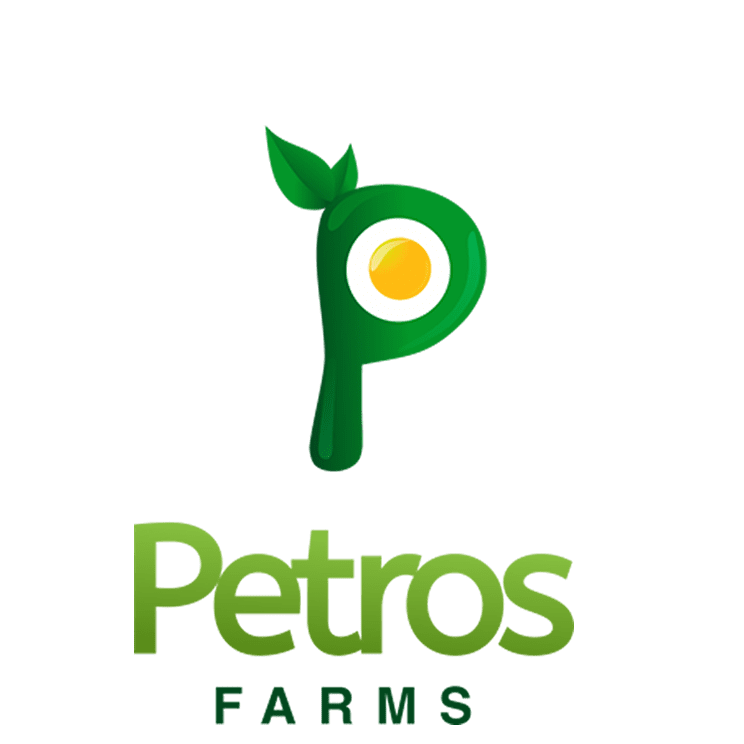28 Oct Want to Start POULTRY FARMING in Africa? Here’s the ULTIMATE Guide!
Introduction:
Are you thinking about starting a poultry farm in Africa? Delving into poultry farming in Africa offers both challenges and rewards. This venture holds significant potential for entrepreneurs, but achieving success requires careful planning and strategic execution. Drawing from our experience at Petros Farms, we provide ten actionable tips to help you build a thriving poultry business. Focus on sustainable practices and efficient egg production with this ultimate guide, designed to equip you with the necessary tips, techniques, and technologies to successfully navigate the complexities of the agricultural landscape in Africa.

- Develop a Robust Business Plan
Your poultry farming journey in Africa begins with a solid business plan. A well-thought-out business plan is the foundation of success. It should outline your goals, target market, financial projections, and operational strategies. By planning ahead, you’ll be better equipped to navigate the challenges of poultry farming in Africa, making it easier to secure investors or loans to grow your farm. - Choose the Right Poultry Breed for Africa’s Climate
Choosing the right poultry breed is crucial for productivity and profitability. Different breeds thrive in different environments, and Africa’s climate can be challenging. Selecting heat-resistant and disease-tolerant breeds ensures higher egg or meat production. At Petros Farms, we prefer ISA Brown layers for their adaptability. Picking the right breed will optimize your output and keep your farm running smoothly. - Invest in High-Quality Infrastructure
Quality infrastructure isn’t just a luxury—it’s a necessity. Your poultry houses should be predator-proof, well-ventilated, and equipped with modern technology to ensure the birds’ health. Investing in solar-powered systems and climate-adapted housing can lower costs and increase sustainability. These factors will not only protect your investment but also help you maintain a steady, high-quality production.
- Ensure Optimal Nutrition and Effective Feeding
Feeding your chickens properly is essential to their growth and egg production. Providing high-quality feed that meets their nutritional needs will keep your flock healthy and productive. At Petros Farms, we produce our own feed to maintain control over quality, but buying from trusted suppliers is also a great option. Proper feeding techniques and schedules will ensure consistent egg or meat yields, which is key to profitability. - Prevent Diseases with Strong Biosecurity Measures
Disease outbreaks can devastate a poultry farm, so strong biosecurity measures are essential. Regular health checks, vaccinations, and strict sanitation protocols will keep your flock safe. At Petros Farms, we emphasize the importance of preventing disease rather than trying to treat it afterward. By maintaining a disease-free environment, you’ll reduce losses and increase the longevity of your farm.

- Embrace Sustainable Farming Practices
Sustainability in poultry farming is not only good for the environment but also for your bottom line. Implementing practices like composting manure for fertilizer, using solar energy, and reducing water waste can cut operational costs. At Petros Farms, we convert poultry waste into organic fertilizer, reducing waste and enhancing profitability. Sustainable farming methods contribute to a more resilient business model in Africa.
- Leverage Technology for Efficient Operations
Technology is revolutionizing poultry farming in Africa. From automated feeding systems to real-time data monitoring, modern tools allow farmers to optimize every aspect of their operations. At Petros Farms, we rely on poultry management software to track production, monitor feed efficiency, and ensure flock health. Embracing technology will help you make data-driven decisions, improve efficiency, and scale your farm with ease.
- Market Your Products with Smart Strategies
Effective marketing is key to growing your poultry business. Whether you’re selling eggs, meat, or poultry-related products, building strong relationships with local markets, restaurants, and hotels is essential. Promoting the unique aspects of your products, such as antibiotic-free eggs or sustainable practices, can set you apart from the competition. The right marketing strategy can increase your reach and drive sales.
- Plan for Scalable Growth and Business Expansion
Start small but think big. Successful poultry farming in Africa requires careful planning for growth. At Petros Farms, we started with modest goals and grew to managing over 45,000 layers. You should always have a vision for where you want your business to go, whether that’s increasing flock size, expanding into new markets, or exploring new products like organic poultry. Planning for growth ensures that your farm remains profitable and sustainable in the long run.
- Build Strong Relationships Within the Industry
No farm operates in isolation. Building strong relationships with suppliers, veterinarians, industry experts, and other poultry farmers can make all the difference. These relationships provide invaluable support, expert advice, and potential business opportunities. At Petros Farms, our network has been a critical part of our success. Building a reliable team and fostering strong industry connections will help you overcome challenges and scale your business.
- Embrace Sustainable Farming Practices

Conclusion
Starting a poultry farm in Africa offers immense opportunities for profitability and growth, but it requires a strategic approach. By following these tips, implementing sustainable practices, and leveraging modern technologies, you can set your farm on the path to success. Take the first step today and turn your dream of poultry farming into a thriving business. Keywords: starting a poultry farm in Africa, sustainable poultry farming, African poultry farming guide.
Top 5 Key Takeaways
1: What are the first steps to starting a poultry farm in Africa?
The first step in starting a poultry farm in Africa is to create a detailed business plan. This plan should outline your farm’s vision, mission, projected financials, and scalability. It’s also crucial to understand the local demand for poultry products and identify reliable distribution networks.
2: How do I choose the right breed for my poultry farm?
Choosing the right breed depends on your production goals (e.g., eggs or meat) and the local climate. For instance, ISA Brown layers are known for their high egg-laying ability and adaptability to Africa’s diverse climates. Research and select breeds that will thrive in your specific environmental conditions and meet market demands.
3: What infrastructure is necessary for a poultry farm?
Essential infrastructure for a poultry farm includes well-ventilated, predator-proof poultry houses. These facilities should be designed with local climate considerations in mind, possibly incorporating sustainable technologies like solar power to reduce operational costs and improve sustainability.
4: How can I prevent diseases in my poultry flock?
Disease prevention is crucial and can be managed by implementing strict biosecurity measures and regular vaccination programs (3 in 1 poultry vaccination for layers etc.). It’s important to conduct regular health checks and environmental monitoring to ensure the well-being of your flock. Keeping your facilities clean and minimizing human traffic into and out of your bird areas can significantly reduce disease risk.
5: How important is technology in modern poultry farming?
Technology plays a critical role in modern poultry farming by providing farmers with detailed insights into flock performance, feed efficiency, and overall productivity. Utilizing poultry management tools helps in monitoring these metrics effectively, enabling better decision-making and increasing farm efficiency.
Cheers.
Petros Farms
Share with:
